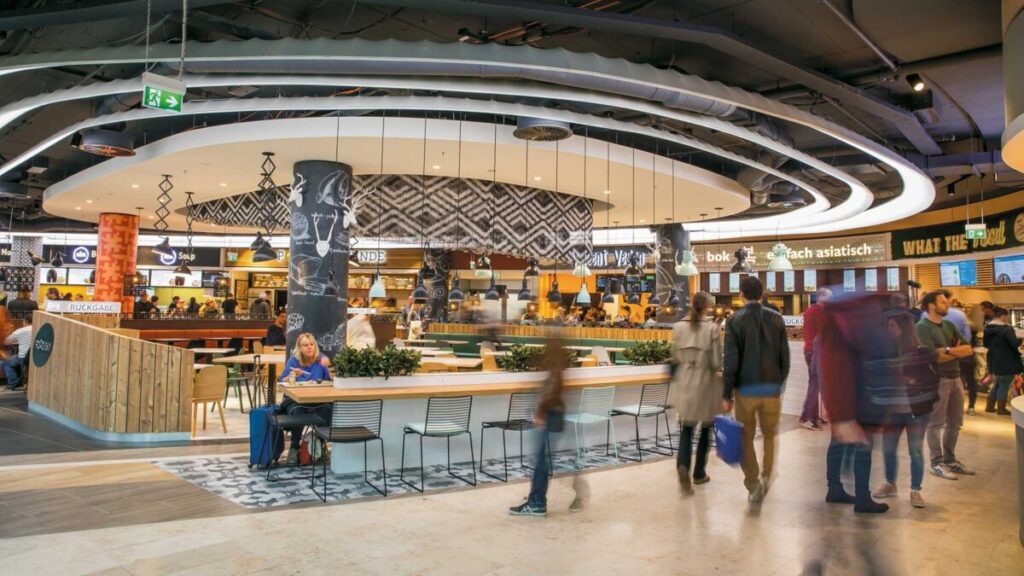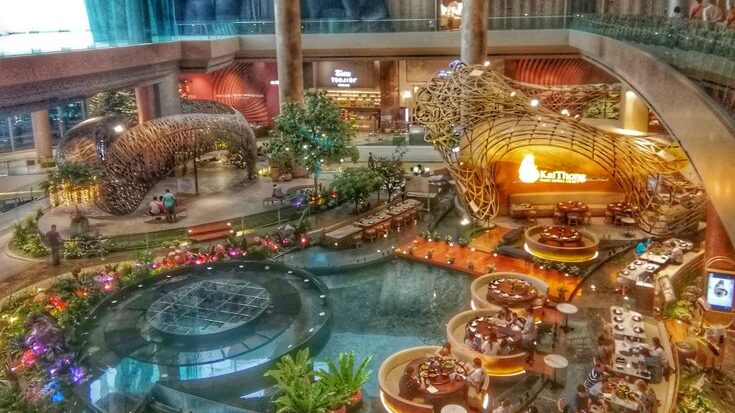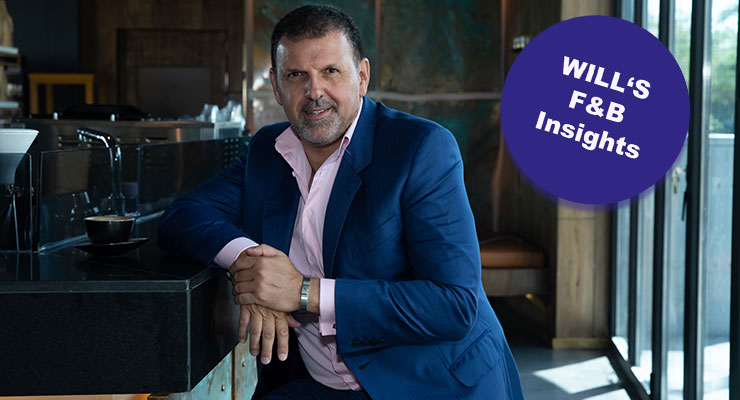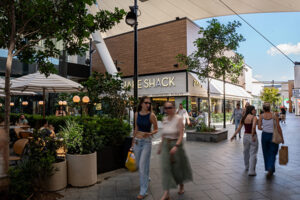In recent years, food courts in shopping malls have been undergoing a transformation to stay relevant in the highly competitive food industry. With consumers becoming more discerning in their culinary choices, food courts have had to evolve to cater to changing tastes and preferences. My all-time favorite examples are Siam Paragon and Icon Siam, Bangkok. But there are great examples now in US malls, at Westfield London, in Istanbul and even in Germany.
Authenticity and Diversity
One of the key trends in the modern food court is the emphasis on authenticity and diversity. Instead of the cookie-cutter fast food chains that used to dominate food courts, mall operators are now bringing in a mix of local, home-grown and international food vendors to offer a much wider range of cuisines. This has led to a more dynamic and multicultural dining experience, with options ranging from sushi and poke bowls to Mexican tacos and Korean BBQ.
In addition to the diverse food options, modern food courts are also placing a greater emphasis on quality and freshness. Many food court vendors now focus on using locally sourced, organic ingredients to create dishes that are not only delicious but also healthy.
This shift towards healthier eating has been driven by changing consumer preferences and a growing awareness of the impact of food choices on health and well-being.
Another important aspect of the modern food court is the focus on ambiance and design. Mall operators have to invest in inviting and far more comfortable spaces for diners to enjoy their meals, with stylish seating areas, vibrant decor, and even live music or entertainment on weekends. This has helped to elevate the dining experience at food courts and attract a wider range of customers, including families, young professionals, and food enthusiasts.
Technology has also played a significant role in shaping the modern food court experience. Many food courts now offer online ordering and delivery services, allowing customers to order their favorite dishes from the comfort of their homes or offices. This convenience has proven to be a major draw for busy shoppers and office workers who are looking for a quick and hassle-free dining option.


The right mix is the key
Despite these innovations, traditional food courts are facing increasing competition from trendy market halls, food halls, and food trucks that offer unique dining, and experiences in non-traditional settings. You might remember we talked about some of these in previous columns and Ep. 2 of the ACROSS podcast Will & Johnny.
While some mall operators have embraced this trend and have started incorporating food hall concepts into their malls, others are struggling to keep up with the changing landscape.
However, there are still many consumers who appreciate the convenience and familiarity of the traditional food court experience. For many, the food court remains a popular choice for a quick and affordable meal while shopping or catching a movie at the mall. With the right mix of food vendors, entertainment options, and ambiance, traditional food courts can continue to attract and retain loyal customers in the years to come.
In conclusion, the food court in shopping malls is undergoing a transformation to stay relevant in today’s competitive food industry. With a focus on authenticity, diversity, quality, ambiance, and technology, modern food courts are offering consumers a more dynamic and engaging dining experience. While traditional food courts may face challenges from new competitors, there is still a place for them in the hearts of many customers who appreciate their convenience and familiarity. Only time will tell how food courts will continue to evolve in response to changing consumer preferences and dining trends.

Will Odwarka
Will Odwarka is the Founder and CEO of Dubai-based firm Heartatwork Hospitality Consulting since 2019. He was born and raised in Vienna, Austria. He has 30+ years of experience leading international strategic growth and development, Franchise and partner management, and F&B operations. He successfully opened over 1000+ outlets in over 40 countries for renowned global players such as McDonald’s, Starbucks, Burger King, Costa, and Wendy’s and smaller players like Creamscafe and Coffeeshopcompany. He strongly focuses on international market entry for F&B players, brand and investor scouting, and AI in hospitality in the Middle East and Europe. Will Odwarka is a guest lecturer at the Academy of Hospitality in Dubai and trainer at the Gregory Vogt School for retail professionals in Dubai. Furthermore, he is a Co-Owner/Operator of Mozart-Hospitality Management, overseeing the operation and development of new food concepts.






